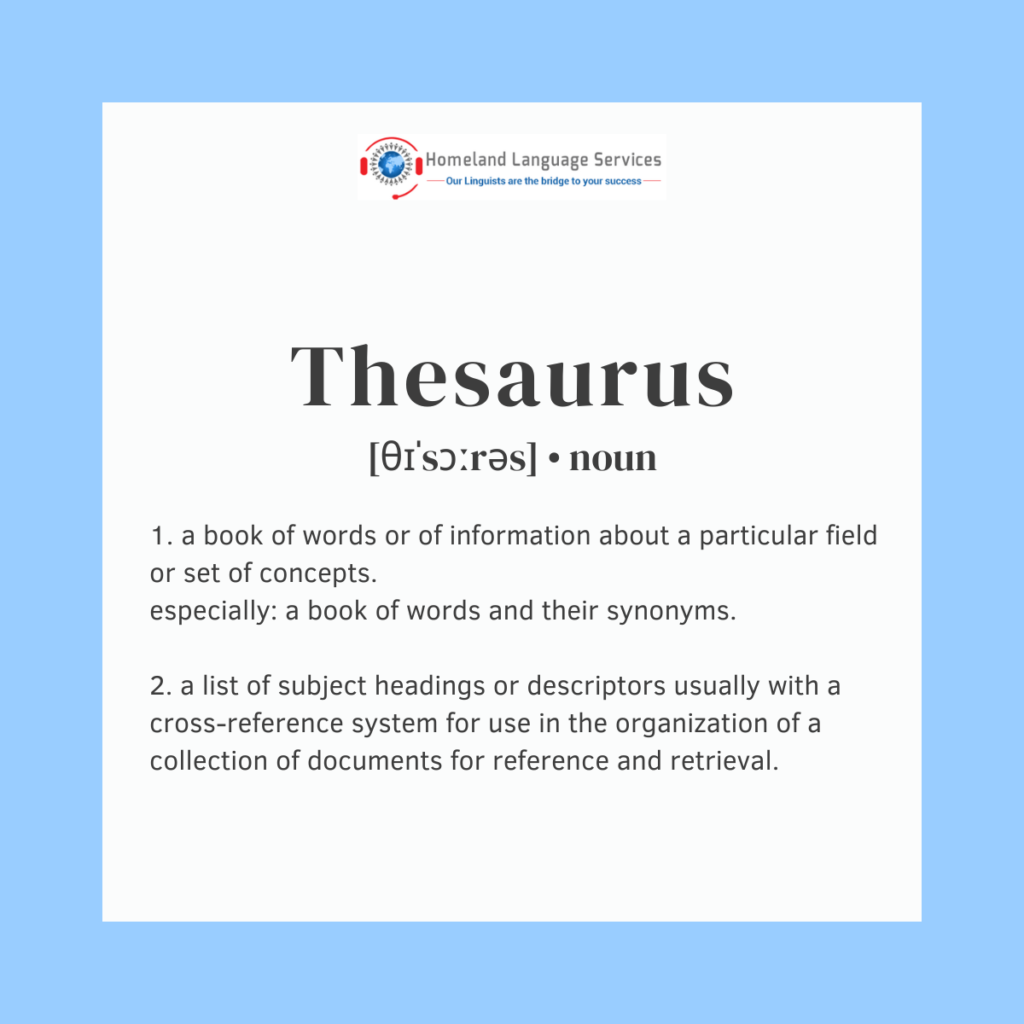When you’re looking for that perfect word to convey your thought, or don’t want to repeat the same word over and over again, where do you go? The thesaurus, of course!
Today we are celebrating National Thesaurus Day! As language specialists, we are very thankful to Peter Mark Roget that he created this wonderful book.
But the word thesaurus was first recorded in English as early as 1730, and it comes from the Greek thēsaurós, meaning “storehouse,” “treasure,” or “treasury.” So, we can think of a thesaurus as a “storehouse” or “treasure-trove” of knowledge (in the form of words).
Peter Roget started the book in 1848 and finished in 1852 with 15,000 words. The book’s full original title was “Thesaurus of English Words and Phrases Classified and Arranged so as to Facilitate the Expression of Ideas and Assist in Literary Composition.”
The word thesaurus was first recorded in English as early as 1730, and it comes from the Greek thēsaurós, meaning “storehouse,” “treasure,” or “treasury.” So, we can think of a thesaurus as a “storehouse” or “treasure-trove” of knowledge (in the form of words).

Our interpreters and translators love National Thesaurus Day, because:
- 1. It helps expand the vocabulary.
- Bigger vocabulary helps during translations and interpretations very much. You can easily find the equivalent in English for the message in the target language. Moreover, if you are working on texts it is always good to have several synonyms to make the lexical level of the text higher.
- 2. It helps avoid repetitions.
- 3. It helps to learn the meanings of new words by seeing what other words they are related to by comparison.
- 4. Compare the shades of meaning in words and pick up the best for the needed topic.

